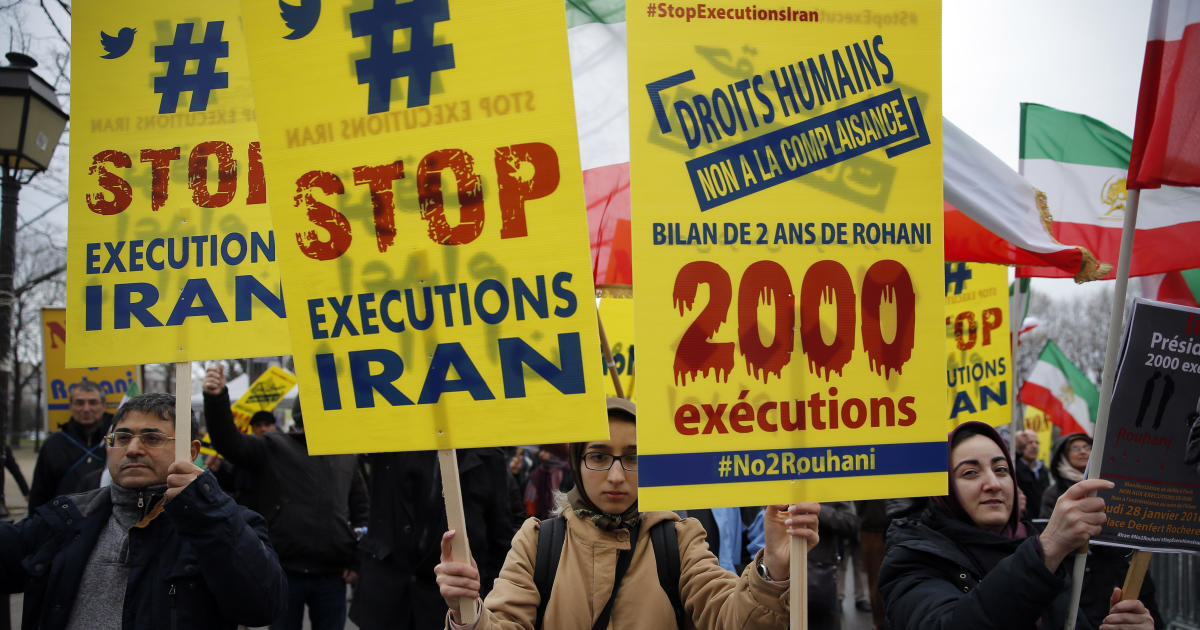Iran’s use of the death penalty has drawn significant international condemnation, particularly its high execution rate and the public nature of some executions. The recent public execution of two men in Khomein, Iran, for the murder of a police officer during an armed robbery highlights the ongoing concerns surrounding capital punishment in the country. This act, while not unusual in the context of Iran’s legal system, underscores the broader issues of human rights and the alarming increase in executions in recent years. The government’s justification, rooted in their legal framework, contrasts sharply with the international human rights standards which emphasize the preservation of life and the prohibition of cruel and unusual punishment. Understanding the context of this event requires a deeper look into Iran’s legal system, the international criticism it faces, and the implications for human rights.
Iran’s Legal System and Capital Punishment
Iran’s legal system is based on a combination of Islamic law (Sharia) and civil law. Capital punishment is prescribed for a range of offenses, including murder, drug trafficking, rape, and certain forms of armed robbery. The severity of the punishment, and whether or not it involves public execution, often depends on the specifics of the crime and the interpretation of Islamic law by the courts.
Public Executions and Their Significance
While public executions are not commonplace in Iran, they carry significant symbolic weight. They serve as a stark deterrent, aimed at preventing similar crimes and reinforcing the authority of the state. However, from a human rights perspective, public executions are considered cruel and inhumane. They violate international standards that promote dignity and the right to a fair trial, regardless of the severity of the crime. The visibility of such executions also creates fear and potentially breeds more violence within society rather than curbing it.
International Condemnation and Human Rights Concerns
Human rights organizations consistently criticize Iran’s high execution rate and the use of the death penalty, particularly when applied inconsistently or to individuals subjected to unfair trials. Amnesty International and Human Rights Watch, for example, have documented a sharp increase in executions in Iran in recent years. These organizations point to flawed judicial processes, lack of due process, and the arbitrary nature of some death sentences as key reasons for their condemnation. Furthermore, the public execution of convicted criminals stands in contrast to the global trend toward the abolition of the death penalty.
Increased Executions and International Pressure
The significant rise in the number of executions in 2023 has intensified international pressure on Iran to reform its legal system. The reported figure for executions, significantly exceeding previous years, raises grave concerns among human rights defenders. The lack of transparency in the judicial system often makes independent verification of these figures difficult, yet their sheer magnitude makes this matter one of urgent international concern. The international community is increasingly demanding greater accountability and transparency in Iran’s judicial processes, seeking to limit and ultimately abolish the use of the death penalty in the country.
The Case of the Khomein Executions
The recent execution of two men in Khomein, specifically publicized for being a public execution, serves as a particularly poignant example of Iran’s approach to capital punishment. While details remain limited in many public executions, it highlighted Iran’s commitment to maintaining capital punishment despite international pressure. This particular incident, coming amid rising international scrutiny of the overall execution numbers, underscores the need for greater transparency in the judicial system and adherence to fair trial standards that are considered internationally acceptable. The execution raises further questions about the due process afforded to the individuals convicted and underscores the significant chasm between Iran’s legal system and the principles enshrined in international human rights law.
Lack of Transparency and Due Process
The details surrounding these executions, like many cases involving capital punishment in Iran, were released to the international community with limited context and access. Such a lack of transparency hampers efforts by international human rights bodies to conduct an independent evaluation of the legality and fairness of the procedures undertaken prior to sentencing. This lack of open and readily accessible information increases concerns over potential irregularities during investigations, judicial trials, and legal representation for the accused. This lack of accountability continues to fuels criticism surrounding Iran’s judiciary and human rights practices.
Implications for Human Rights and International Relations
The widespread use of the death penalty in Iran directly impacts its relationship with the international community. Many nations openly oppose Iran’s execution rate, and human rights violations remain a central point of contention in bilateral and multilateral dialogues. The increasing number of executions and the public nature of some cases directly impact diplomatic relations, creating friction in political interactions. The international community’s condemnation places significant diplomatic pressure on Iran, highlighting the disconnect between the nation’s internal legal system and the broader international consensus regarding human rights and fundamental freedoms.
Potential for International Sanctions
The persistent use of the death penalty and the reported increases in executions can lead to increased pressure on Iran, through measures including international sanctions or targeted restrictions on government officials involved in executions. The international community’s growing dissatisfaction with Iran’s human rights record could potentially result in heightened isolation and further restrictions imposed by various international organizations. The continuation of capital punishment serves not only to undermine global human rights standards but to also isolate Iran from international political and economic cooperation.
Takeaway Points:
- Iran’s use of the death penalty is widespread and is a significant concern for the international community.
- The number of executions has increased significantly in recent years.
- Public executions, while rare, highlight the harsh nature of Iran’s justice system.
- The lack of transparency in Iran’s judicial system makes it difficult to assess the fairness of trials and sentences.
- Iran’s stance on capital punishment significantly impacts its international relations.




